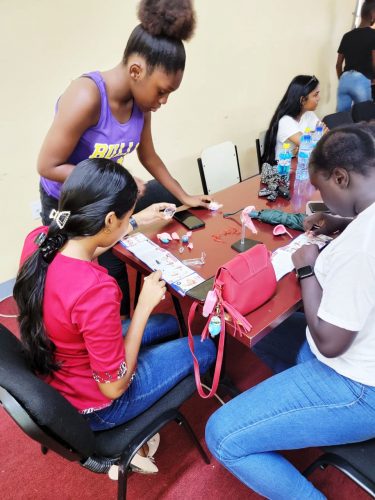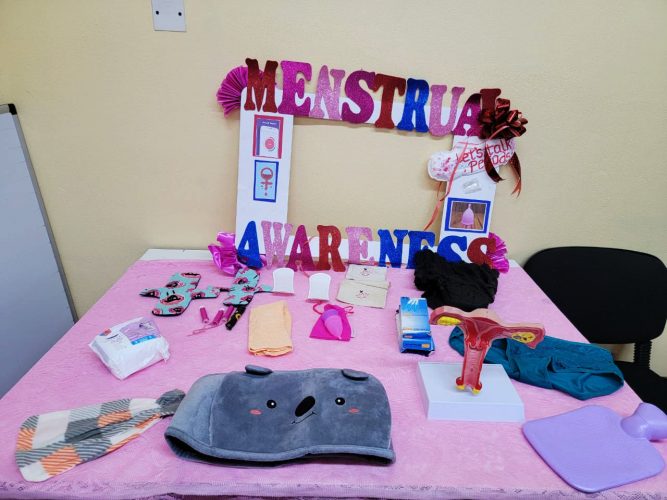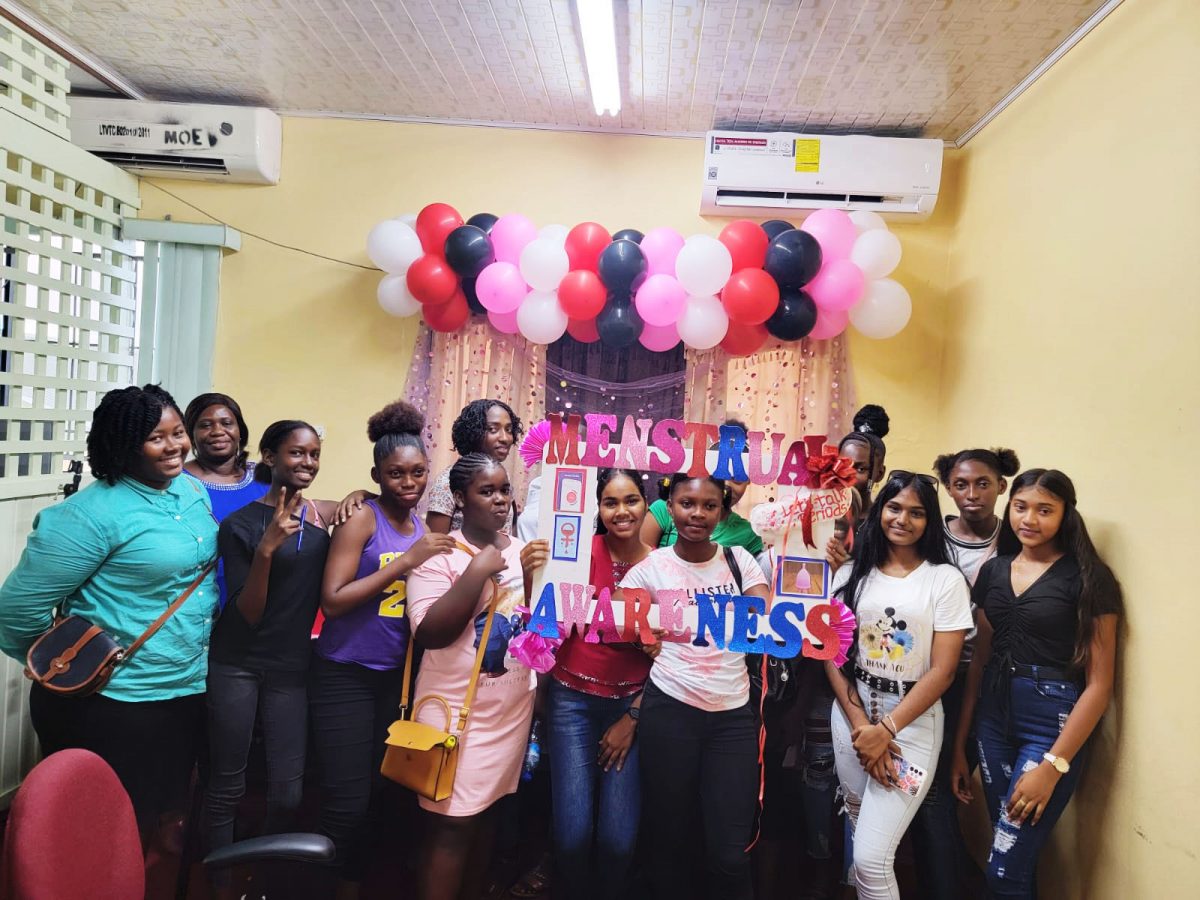Dr Ashonda Washington is passionate about combating ignorance around menstruation and aside from her work in primary healthcare, she has been holding outreaches to raise awareness and teach proper hygiene during menstruation.
On May 28 last, in collaboration with the Avyanna Foundation, she organised a walk to observe menstrual hygiene day. Though there was not a massive turnout, Dr Washington said that it was still a success in her view, adding “little by little it would get there.”
In an interview with the Sunday Stabroek, she explained that while menstrual hygiene day was initiated in Germany in 2014, it was actually observed the following year. She noted that the 28th day of the fifth month was selected, given that the menstrual cycle generally is 28 days and the period usually lasts for five days. The theme under which it was celebrated globally, was ‘making menstruation a normal fact of life by 2030’.

During a recent outreach at Leonora, Dr Washington addressed how to prevent infections and the importance of using clean and safe products during menstruation, among other subjects. The feedback received was that the participants learned things they were never aware of – a goal in Washington’s awareness drive.
While she would like to do much more, she said, sponsorship has been one of her downfalls. “It has been a little challenging but I am not giving up… There are persons that I get support from. Sponsorship is a little bit difficult to get,” she said.
She stressed that she not only discusses menstrual hygiene but also focuses on being positive and encourages participants on how to work on that aspect. “I would let them say positive things about themselves so that they would feel good and help them build their self-esteem,” she related.
The last outreach attracted girls between the ages of 9-16 years as she tries to target those who may not have had their first period yet and focuses on how to handle it.
“I also get them to role-play, give them scenarios such as: if you see a colleague in school with blood-stained clothes, what would be your reaction? [I] try to teach them that they can discreetly go to the person and tell them,” she said.
In terms of the hygiene aspect, she also discusses how they should put on, take off and properly dispose of their sanitary items as well as how long one should wear a sanitary pad.
Stressing that much more needs to be done when it comes to these types of outreaches, she said, following her sessions she has discovered that often there are no actual conversations about menstruation in households. “Even yesterday there was a teacher who was sitting there and said she was impressed and she was asking if we can do sessions with other groups,” she added.
Dr Washington is hoping to complete several other outreaches in Region Four this year, especially in areas where access is limited and also has the intention of doing the same in the interior.

She will also be looking at the possibility of having such discussions in schools, stressing the importance of getting boys involved in learning how to offer support to the women and girls in their lives during the menstruation period.
In a previous interview with this publication, Dr Washington had said that as a child she herself was confused at times and she recalled that while she was boarding at President’s College many of her peers had the same experience. Over the years, she has been giving information to her patients but wanted to take it to a broader level, hence the launch of the Menstrual Awareness Campaign which focuses on period education. In the future she hopes to launch a non-profit organization called Partners in Health that will encompass sexual and reproductive health.





